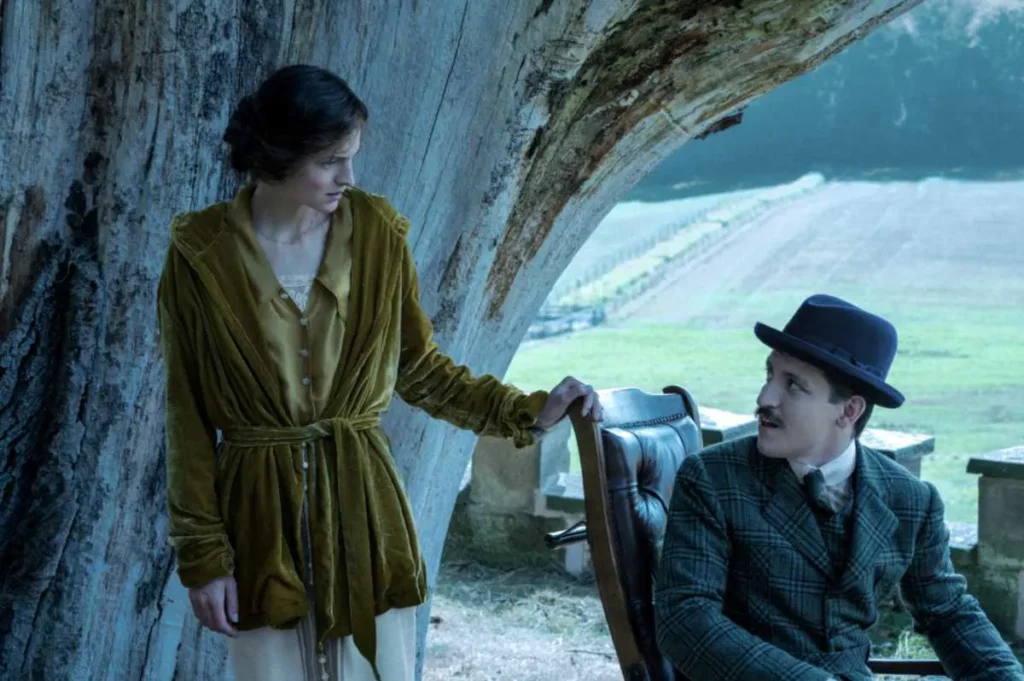Read also:
How to Watch FX Live Without CableHow To Watch AMC Without CableHow to Watch ABC Without CableHow to Watch Paramount Network Without CableLaure De Clermont-Tonnerre directs a lush & sensuous adaptation of D.H. Lawrence’s classic romance.
While movies seem to be getting increasingly chaste, it’s a comfort to know that joyful, consensual sex still has a place on television. D.H. Lawrence’s 1928 novel tells the story of Lady Constance Chatterley, married to a minor lord whose injuries in World War I have left him paralyzed from the waist down. While its themes of classism, a declining nobility, and the dangers of industry were nothing new, the explicit (for the times) sexual content was enough to get the book banned from at least five countries, including the US. Nearly a century later, it still feels just as revolutionary. Not the sexual content—you can find books much more scintillating in the average grocery store—but the fact that Lawrence was celebrating sex and pleasure for its own sake.
Now a feature-length adaptation for Netflix, French director Laure De Clermont-Tonnerre has managed to condense the spirit, if not the letter, of Lawrence’s novel into a lovely production. With Emma Corrin taking on the titular role of Lady Chatterley, however, lovely doesn’t do it justice. Corrin—who made a splash in their debut as a young Princess Diana in season 4 of The Crown—has again taken what could be a rather staid English period drama and made it magical. Constance’s loneliness, her stark craving for love and affection, and her intelligence all come through in Corrin’s capable hands. Constance’s effervescent good nature makes it impossible to dislike her, even when she does unlikable things.
We follow Constance through the early days of her marriage and watch as she learns to adjust to the realities of her new life. Her husband, Sir Clifford (Matthew Duckett), won’t allow anyone but Constance to see to his physical needs—a huge responsibility to be thrust on a young wife. Still, Constance makes the best of things, exhausted and unable to have a moment alone as her husband begins to see her less as a wife and more as a nurse. Seeking any reprieve from her stifling life in the manor, Constance forms a bond with Oliver Mellors (Jack O’Connell), her husband’s gamekeeper. While their initial interactions are brief, there is a frisson of excitement and expectation between them. Their attraction is intensely physical, but not only physical. They connect on an intellectual and emotional level, and share a core set of values. In short, they just vibe.

Against a backdrop of mellow springtime splendor, Constance and Oliver’s trysts frequently happen outdoors, depicting them as literal flower children making love in a meadow. There aren’t many grand, sweeping shots of the English countryside. Instead, the landscape is shown in tactile, intimate detail. Andrea Arnold’s 2011 adaptation of Wuthering Heights uses this technique, but instead of gloomy, windswept moors, we get sun-warmed meadows and mellow spring rain. The skillful framework reminds us that attraction, sex, pleasure, and love are natural and give life deeper meaning.
Constance and Oliver’s kinship with the natural world contrasts Clifford’s growing obsession with running his mines, something that young bohemian Constance has little interest in. With new technologies available, Clifford can make himself wealthier while making his workers redundant, quickly making him so hated among the villagers that the only one who will say a good word about him is his loyal nurse, Mrs. Bolton (Joely Richardson).
In the novel, Oliver spends much time talking about the dangers of growing industry and its effect on the natural world. While that particular plot point isn’t given the time or weight that the novel gives it, it’s clear to see through De Clermont-Tonnerre’s shorthand. And though the ending doesn’t have the same weight of uncertainty that Lawrence gave the novel, it’s nevertheless a gorgeous film to get swept up in for its own sake.
Lady Chatterley’s Lover is now playing in select theaters & premieres on Netflix December 1st.